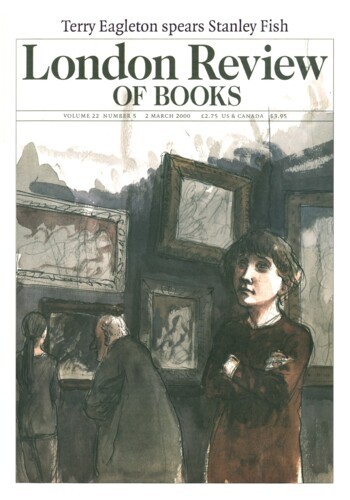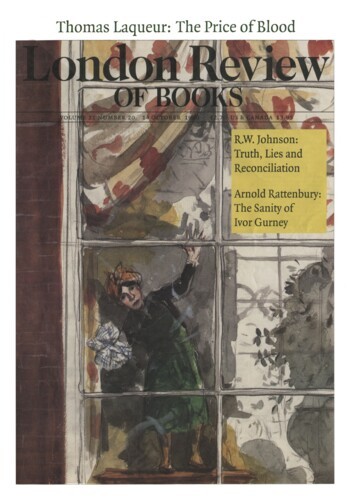‘You know, in my family,’ remarks a gay Irish architect in Colm Tóibín’s The Blackwater Lightship, ‘my brothers and sisters – even the married ones – still haven’t told my parents that they are heterosexual.’ It is a neat Wildean inversion, one of the few good jokes in this harrowing, deeply unfunny novel, and a flash of wit with wider implications. For this is a novel about Aids which is not a ‘gay’ novel, or indeed much about sexuality at all. It is about mothering; and this is a gay issue in the book only because those most proficient at the craft turn out to be a couple of homosexual men. Larry the architect goes on to suggest that his mother would probably rather find out he was a Provo than gay: at least that would be something ‘normal’ they could talk about. Revealing or not revealing what you are is a way of trying to make contact with a mother, not a condition in itself.’‘
‘You know, in my family,’ remarks a gay Irish architect in Colm Tóibín’s The Blackwater Lightship, ‘my brothers and sisters – even the married ones...





